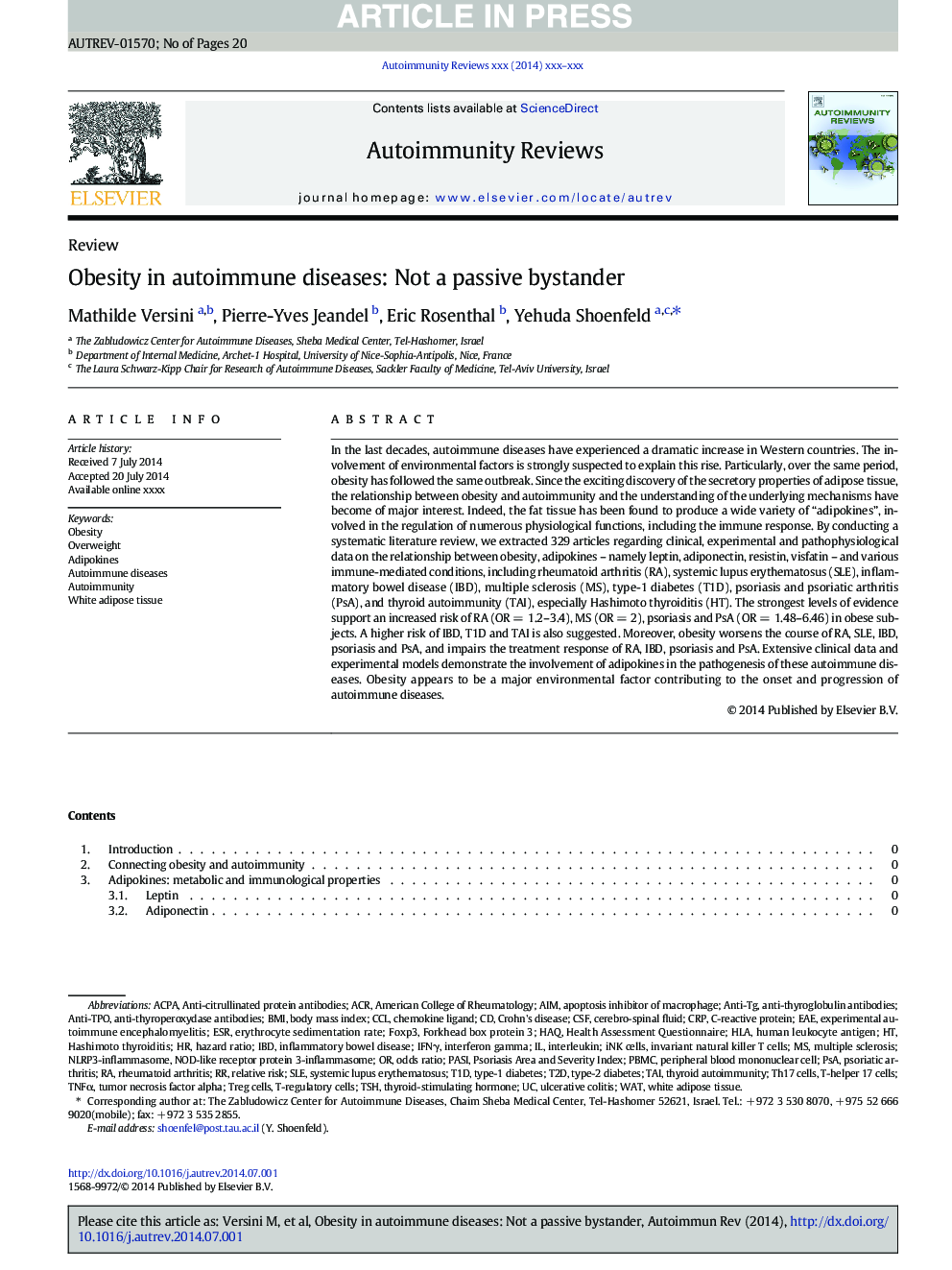| Article ID | Journal | Published Year | Pages | File Type |
|---|---|---|---|---|
| 6114447 | Autoimmunity Reviews | 2014 | 20 Pages |
Abstract
In the last decades, autoimmune diseases have experienced a dramatic increase in Western countries. The involvement of environmental factors is strongly suspected to explain this rise. Particularly, over the same period, obesity has followed the same outbreak. Since the exciting discovery of the secretory properties of adipose tissue, the relationship between obesity and autoimmunity and the understanding of the underlying mechanisms have become of major interest. Indeed, the fat tissue has been found to produce a wide variety of “adipokines”, involved in the regulation of numerous physiological functions, including the immune response. By conducting a systematic literature review, we extracted 329 articles regarding clinical, experimental and pathophysiological data on the relationship between obesity, adipokines - namely leptin, adiponectin, resistin, visfatin - and various immune-mediated conditions, including rheumatoid arthritis (RA), systemic lupus erythematosus (SLE), inflammatory bowel disease (IBD), multiple sclerosis (MS), type-1 diabetes (T1D), psoriasis and psoriatic arthritis (PsA), and thyroid autoimmunity (TAI), especially Hashimoto thyroiditis (HT). The strongest levels of evidence support an increased risk of RA (ORÂ =Â 1.2-3.4), MS (ORÂ =Â 2), psoriasis and PsA (ORÂ =Â 1.48-6.46) in obese subjects. A higher risk of IBD, T1D and TAI is also suggested. Moreover, obesity worsens the course of RA, SLE, IBD, psoriasis and PsA, and impairs the treatment response of RA, IBD, psoriasis and PsA. Extensive clinical data and experimental models demonstrate the involvement of adipokines in the pathogenesis of these autoimmune diseases. Obesity appears to be a major environmental factor contributing to the onset and progression of autoimmune diseases.
Keywords
NLRP3-inflammasomeFOXP3Anti-TGIFNγESRHAQIBDACPAACRCCLEAEinvariant natural killer T cellsanti-citrullinated protein antibodiesHuman leukocyte antigenAnti-thyroglobulin antibodiesHLAexperimental autoimmune encephalomyelitisinterleukinCrohn's diseaseInflammatory bowel diseaseHashimoto thyroiditiserythrocyte sedimentation ratebody mass indexBMIAnti-TPOChemokine ligandcerebro-spinal fluidCSFMultiple sclerosishazard ratioAIMHealth Assessment QuestionnaireC-reactive proteinCRPforkhead box protein 3American College of RheumatologyInterferon gamma
Related Topics
Life Sciences
Immunology and Microbiology
Immunology
Authors
Mathilde Versini, Pierre-Yves Jeandel, Eric Rosenthal, Yehuda Shoenfeld,
